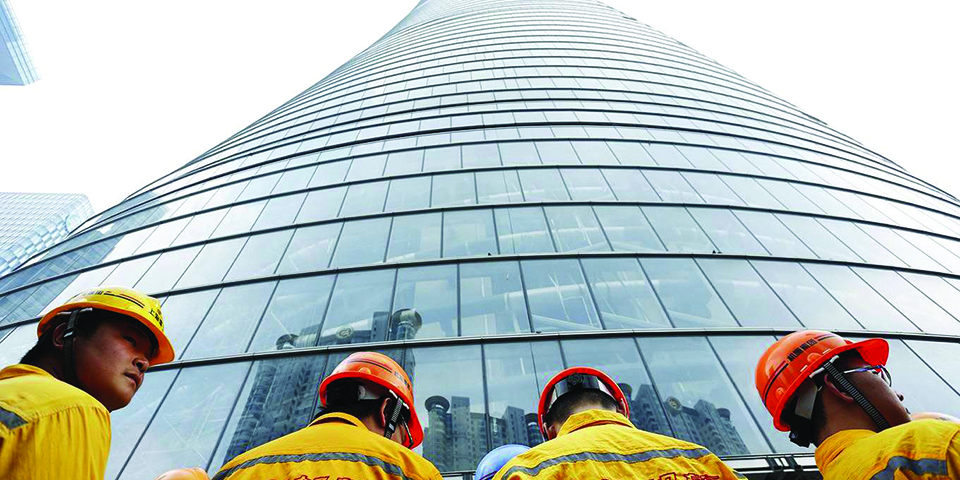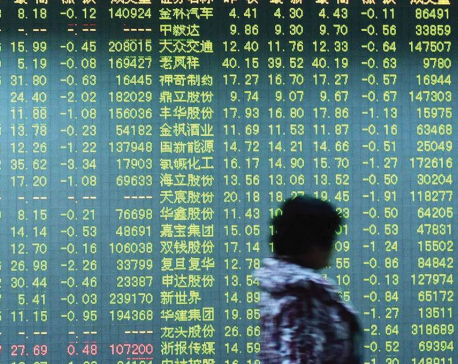
OR

Trump thinks attacking China through trade will help to “Make America Great Again.” But it is more likely to make China stronger
BEIJING – The world’s two largest economies—China and the United States—are engaged in a full-blown trade war, and what US President Donald Trump hoped would be a blitzkrieg has turned out more like trench combat. Many fear that this is only the beginning of a long conflict that could include weapons—and casualties—far outside the realm of trade.
Since China joined the World Trade Organization in 2001, the US has taken issue with China’s large current-account surplus and the undervalued renminbi. But over the last ten years, that surplus has pretty much disappeared, and the renminbi has largely been appreciating. Now, the US has shifted its attention to China’s inadequate protection of intellectual property rights and its policy of appropriating foreign technology in exchange for market access.
Yet, in China’s view, what the US is really reacting to is not only the specifics of its trade policy, but also its overall development model and its aspirations to become a major global power—aspirations that are not out of reach. In fact, the Chinese believe, Trump’s trade war effectively proves that China has become a real and present threat to American hegemony.
Whether this is true or not is irrelevant; what matters is Chinese perception. Whereas in the past, only a few conservatives warned of US attempts to “contain” China, virtually everyone in China now buys into this narrative, including a growing number of young people.
Having grown up amid prosperity and confidence, exposed to Western lifestyles and educations, China’s millennial generation—born in the 1980s and 1990s—were supposed to usher in an era of even greater openness and freedom. Yet these young people—who have previously reported much warmer feelings toward Western countries and Japan than their parents and grandparents—are having their faith in Western ideas tested by Trump’s actions.
The real danger is that rising nationalism could embolden a contingent of the Party, known in China as the New Left, that denounces capitalism and its Western proponents, and calls for a return to the Maoist socialist order of 40 years ago.
On the positive side, it is likely to produce the political cohesion needed to implement structural reforms that shift the economy away from trade and manufacturing and toward domestic consumption. As different interest groups and factions unite against a common foe, President Xi Jinping will gain even more political capital, facilitating the shift from export-led economic growth to a trade-neutral model. Tax cuts and the redistribution of wealth toward households are also possibilities.
This is not to say that China is not continuing to pursue its plans to open up further. Even as China raises tariffs on US imports, it is lowering tariffs for other countries, in order to fulfill its promise to increase overall imports and bolster domestic consumption. And its impending liberalization of its financial-services sector will amount to its biggest step toward openness since its accession to the WTO.
Areas that will become open to foreign participation include banking, securities, insurance, payments, and ratings services. Restrictions on foreign investors’ equity holdings or investments in services are being sequentially eliminated. Reflecting Xi’s belief that “sooner is better than later, and faster is better than slower,” at least seven of the 11 measures the central bank announced in April have already been completed.
Even as China continues its economic opening, however, it is looking increasingly inward, at its citizens to serve as consumers and at its businesses to adopt and advance new technologies. Many companies have already redoubled their efforts to increase their value-added and innovation capacity.
Whether Trump’s trade war is about containing China or just about punishing it for its trade practices, the unintended consequence is that China is now fortifying itself for a new era of political and economic challenges. Yes, the country will find it more difficult to pursue the “Belt and Road Initiative,” for example, or to export its excess capacity. But in the longer term, reducing its reliance on foreign trade and imported technologies will leave China stronger, more resilient, and possibly less willing to acquiesce to US-designed rules.
Sometimes the “loser” of a trade war ends up better off than the “winner.” In the 1980s, when President Ronald Reagan imposed restrictions on the number of cars Japan could export to the US, Japan suffered. But, over time, it developed its auto industry so that it could export more expensive cars.
Trump thinks that attacking China through trade will help to “Make America Great Again.” But it is more likely to make China stronger.
Keyu Jin, a professor of economics at the London School of Economics, is a World Economic Forum Young Global Leader and a member of the Richemont
Group Advisory Board
© 2018, Project Syndicate
www.project-syndicate.org
You May Like This

Mayday for protectionism
Whereas America built less than one million gross tons of ships between 2014 and 2016, South Korea and China produced a... Read More...

No middle-income trap for China
The daunting challenges that China faces at this point in its economic development are far more important than whether its... Read More...

Competing for influence
Is the United States flashing a friendlier face or is it a ploy at unsettling China which sees Nepal as... Read More...



Just In
- Karnali CM Kandel secures vote of confidence
- National Youth Scientists Conference to be organized in Surkhet
- Rautahat traders call for extended night market hours amid summer heat
- Resignation of JSP minister rejected in Lumbini province
- Russia warns NATO nuclear facilities in Poland could become military target
- 16th Five Year Plan: Govt unveils 40 goals for prosperity (with full list)
- SC hearing on fake Bhutanese refugees case involving ex-deputy PM Rayamajhi today
- Clash erupts between police and agitating locals in Dhanusha, nine tear gas shells fired

















Leave A Comment